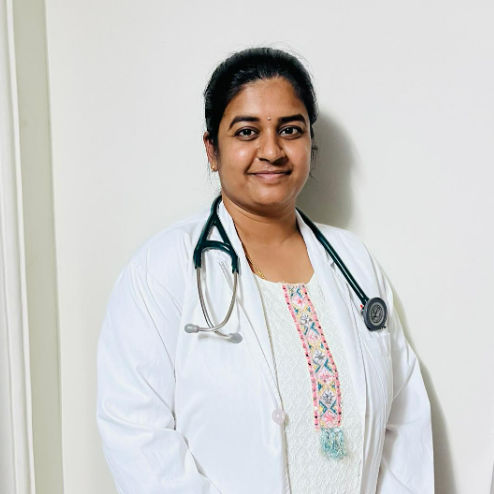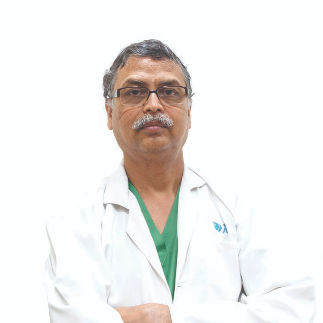Top Cause of Pancreatic Cancer Explained
Discover the leading causes of pancreatic cancer, including smoking, genetics, and obesity. Learn the symptoms, risk factors, and prevention tips to protect your health.

Written by Dr. Siri Nallapu
Reviewed by Dr. Rohinipriyanka Pondugula MBBS
Last updated on 30th Jul, 2025

Introduction
Pancreatic cancer is a serious health condition that affects the pancreas, an essential organ responsible for producing digestive enzymes and regulating blood sugar. Understanding its causes can help in early detection and prevention. In this article, we’ll explain the top causes of pancreatic cancer in simple terms, along with symptoms, risk factors, and ways to reduce your risk.
What Is Pancreatic Cancer?
Pancreatic cancer occurs when abnormal cells grow uncontrollably in the pancreas. These cells can form tumours and interfere with the pancreas’s normal functions. Unfortunately, pancreatic cancer is often diagnosed at an advanced stage because early symptoms are subtle or absent.
Top Causes of Pancreatic Cancer
While the exact cause is not always clear, several factors increase the risk:
1. Smoking
Why it’s a major cause: Smoking is one of the biggest risk factors for pancreatic cancer. Harmful chemicals in tobacco damage pancreatic cells, increasing cancer risk.
What you can do: Quitting smoking significantly reduces your risk over time.
2. Family History & Genetics
Why it matters: If a close family member (parent, sibling, or child) had pancreatic cancer, your risk increases. Certain genetic mutations (like BRCA2 or Lynch syndrome) also play a role.
What you can do: If you have a strong family history, genetic counseling and regular screenings may help in early detection.
3. Chronic Pancreatitis (Long-Term Inflammation)
Why it’s harmful: Repeated inflammation of the pancreas can lead to DNA damage, raising cancer risk.
What you can do: Managing pancreatitis with medication, a low-fat diet, and avoiding alcohol can help.
4. Diabetes (Especially Long-Term or Sudden Onset)
The link: Long-standing diabetes increases pancreatic cancer risk. In some cases, sudden-onset diabetes in older adults may be an early sign of pancreatic cancer.
What you can do: Maintaining blood sugar levels through diet, exercise, and medication can help lower risk.
5. Obesity & Poor Diet
Why it’s a concern: Obesity increases inflammation and insulin resistance, which may contribute to pancreatic cancer. A diet high in processed meats, fried foods, and sugar also plays a role.
What you can do: Eating a balanced diet (rich in fruits, vegetables, and whole grains) and maintaining a healthy weight can reduce risk.
6. Age (Most Cases Occur After 60)
Why age matters: The risk increases with age, with most cases diagnosed in people over 60.
What you can do: Regular health check-ups become more important as you age.
7. Alcohol Abuse
How it affects the pancreas: Heavy alcohol use can cause chronic pancreatitis, which may lead to cancer.
What you can do: Limiting alcohol intake reduces risk.
Get Your Symptoms Checked By An Oncologist
Symptoms of Pancreatic Cancer
Early signs are often vague, but watch for:
Jaundice (yellowing of skin/eyes)
Unexplained weight loss
Abdominal or back pain
Loss of appetite
Nausea & digestive issues
New-onset diabetes (in older adults)
If you experience these symptoms persistently, consult a doctor.
How to Lower Your Risk
While some factors (like genetics) can’t be changed, you can take steps to reduce risk:
Quit smoking: Seek help if needed.
Maintain a healthy weight: Exercise regularly.
Eat a balanced diet: More veggies, less processed food.
Limit alcohol: Stick to moderate drinking.
Control diabetes: Follow medical advice.
Get regular check-ups: Especially if you have a family history.
When to See a Doctor
If you have persistent symptoms or a strong family history, early screening can help. Apollo 24|7 offers expert consultations and diagnostic tests for pancreatic health.
Need Help? Book a consultation with a specialist today on Apollo 24|7 for personalised advice.
Conclusion
Pancreatic cancer is a serious but often preventable disease when risk factors are understood and managed early. By making healthy lifestyle choices, staying alert to symptoms, and seeking timely medical advice, you can significantly lower your risk and improve your chances of early detection. Don’t ignore persistent warning signs—early action can make a life-saving difference.
Get Your Symptoms Checked By An Oncologist
Get Your Symptoms Checked By An Oncologist

Dr. Tarun Jindal
Uro Oncologist
14 Years • MS (AIIMS, New Delhi), MCh (Gold Medalist), Fellow, VUI, Henry Ford Hospital, Detroit, USA; Robotic and Laparoscopic surgeon
Kolkata
Apollo Multispeciality Hospitals , Kolkata, Kolkata
(100+ Patients)

Dr Nikhil Suresh Ghadyalpatil
Oncologist
18 Years • MBBS, MD (G. Med), DNB (G.Med), MNAMS DM (Medical Oncology - Tata Memorial Hospital) European Certification In Medical Oncology (ECMO) MRCP (Med Onco SCE), PDCR
Hyderabad
Apollo Hospitals Jubilee Hills, Hyderabad

Dr. Sandeep Muzumder
Radiation Specialist Oncologist
21 Years • MBBS (JIPMER, Pondicherry), MD (AIIMS, New Delhi)
Bhubaneswar
Apollo Hospitals Old Sainik School Road, Bhubaneswar

Dr. Gopal Kumar
Head, Neck and Thyroid Cancer Surgeon
15 Years • MBBS, MS , FARHNS ( Seoul, South Korea ), FGOLF ( MSKCC, New York )
Delhi
Apollo Hospitals Indraprastha, Delhi
(25+ Patients)

Dr. Praveen Kumar Garg
Surgical Oncologist
26 Years • MBBS, M.S.(Gen.Surg.), M.Ch.(OncoSurg.)
Delhi
Apollo Hospitals Indraprastha, Delhi
(25+ Patients)